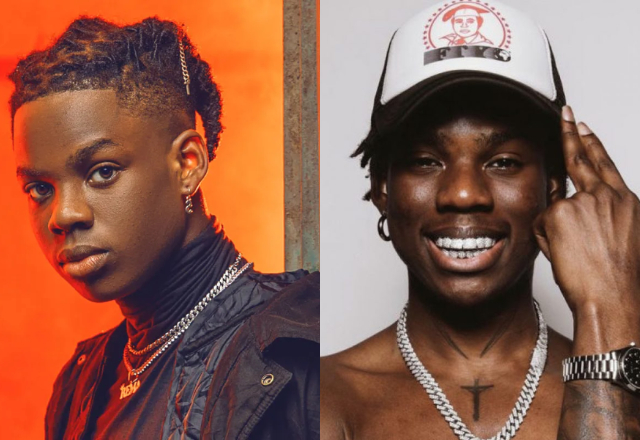Nigerian Afrobeats sensation Rema has stepped into the spotlight to address persistent rumors about his alleged association with the Illuminati. The ‘Calm Down’ hitmaker’s recent interview has sent ripples through the entertainment world, offering a rare glimpse into the mind of one of Africa’s most enigmatic young stars.
Rema, whose meteoric rise to fame has been nothing short of phenomenal, found himself at the center of controversy following his sold-out concert at the O2 Arena. The event, which showcased striking red visual elements inspired by Benin culture, raised eyebrows among some Christian attendees. The lack of immediate clarification from the artist led to widespread speculation about a potential sinister agenda, with some accusing him of selling his soul for fame and fortune.
In a candid interview that has since gone viral, Rema expressed his astonishment at the persistence of these Illuminati rumors. “Of all the speculations I’ve heard about myself in this industry, the Illuminati one surprised me the most,” the artist revealed. He went on to clarify that his intention was simply to celebrate his Edo heritage and draw artistic inspiration from his roots.
Rema’s decision to incorporate elements of his Edo heritage into his performances speaks to a broader trend in African music, where artists are increasingly looking to their cultural roots for inspiration. This movement, while celebrated by many, has also led to misunderstandings and controversies, particularly when traditional symbols clash with more mainstream religious interpretations.
The artist’s clarification comes at a crucial time in his career. Having successfully broken into the international market, Rema stands as one of the leading figures in the global Afrobeats movement. His ability to navigate these controversies while staying true to his artistic vision and cultural identity is seen by many as a testament to his maturity and commitment to his craft.
The controversy surrounding Rema’s performances highlights the complex relationship between traditional African cultures and contemporary Christianity in Nigeria. The country, known for its deep religious convictions, often sees tensions arise when traditional practices or symbols are incorporated into popular culture.
Rema’s fans have rallied around the artist, with many taking to social media to express their support. User @AfrobeatsFanatic tweeted, “Rema celebrating his Edo roots isn’t devil worship, it’s cultural pride! #ProudlyBenin #RemaRises.” This outpouring of support suggests that many young Nigerians are eager to see their indigenous cultures represented in contemporary art forms.
“They say I worship the devil”
– Rema pic.twitter.com/vqLoVCn0XF
— @𝗼𝗻𝗲𝗷𝗼𝗯𝗹𝗲𝘀𝘀𝗯𝗼𝘆 (@OneJoblessBoy) September 21, 2024
The controversy has also sparked a broader conversation about artistic freedom and cultural expression in Nigeria. Many artists and intellectuals argue that the fear of misinterpretation should not stifle creative expression or the celebration of cultural heritage.
As the dust settles on this latest controversy, industry insiders are watching closely to see how it might impact Rema’s career. So far, the artist seems to have emerged unscathed, with his fan base seemingly more energized than ever. His ability to address the rumors head-on while reaffirming his cultural pride has been widely praised as a masterclass in celebrity crisis management.
Looking ahead, this incident may serve as a turning point in how Nigerian artists approach the incorporation of traditional elements into their work. It highlights the need for better cultural education and dialogue between artists and their audiences.
For Rema, the path forward seems clear. By standing firm in his artistic choices and openly discussing the cultural significance behind his performances, he has positioned himself not just as a musical icon, but as a cultural ambassador for his Edo heritage.
As Nigeria’s music scene continues to gain global recognition, incidents like this serve as important reminders of the power of art to spark crucial conversations about culture, identity, and perception. In navigating these waters, artists like Rema are not just creating music; they’re shaping the narrative of what it means to be a modern African artist on the world stage.
The Rema Illuminati saga, while controversial, may ultimately serve as a catalyst for greater understanding and appreciation of Nigeria’s rich cultural tapestry. As the nation’s music continues to conquer global charts, it’s clear that the journey will involve not just beats and lyrics, but a deeper exploration of the diverse traditions that make Nigerian culture so vibrant and unique.




